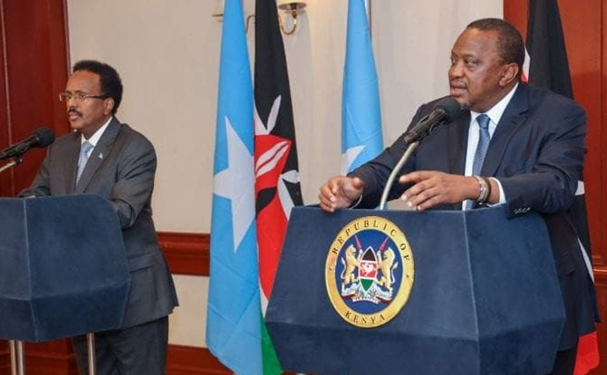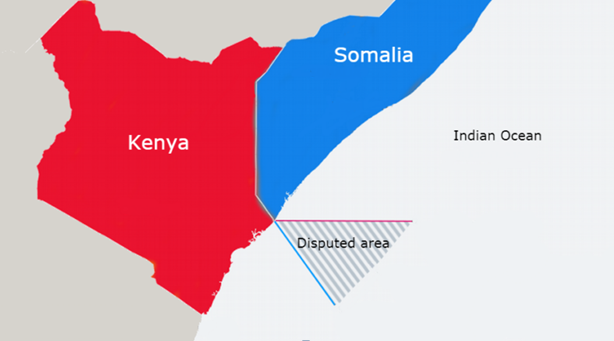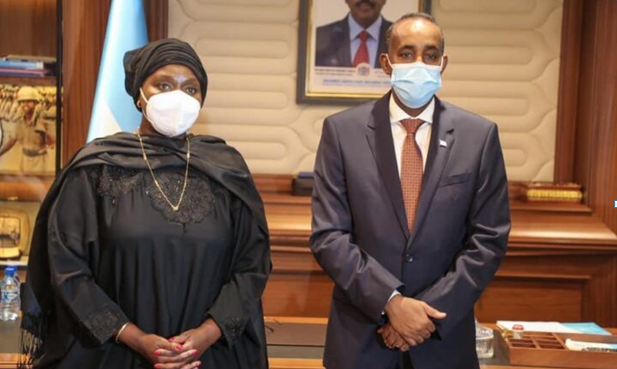
Somali Deputy Prime Minister Mahdi Mohammed Gulaid says the International Court of Justice (ICJ) has set 12 October as the date for its ruling in the long-running maritime dispute between Somalia and Kenya. The ruling is set to come despite the fact that Kenya already withdrew from the case, alleging that the ICJ was bias, with calls for a Somali judge on the panel to recuse himself.
Kenya’s Foreign Affairs ministry in March this year said it had withdrawn from the ICJ case on account of procedural unfairness at the court, betrayal and external interference, among other reasons. Kenya in one of its arguments over its withdrawal from the case, said it decided not to be dragged to the court by Somalia merely because of what it termed as its neighbor’s growing expansionist agenda. Last year the case was postponed thrice after Kenya raised a number of issues, including changing of counsels. It claimed that the composition of the membership of the bench conducting the case reinforced concerns of bias, citing the case of Somali citizen, Judge Abdulqawi Yusuf, who sits on the ICJ and who has previously represented Somalia at the Third United Nations Conference on the law of the sea.
October’s ruling is expected to end the seven-year maritime case that Somalia filed at the ICJ in 2014. The case concerns a 62,000 square miles (160,000 sq km) triangle in the Indian Ocean, an area that is thought to be rich in oil and gas. The row has persisted for the last six years, keeping investors away because of a lack of legal clarity over who owns potential off-shore oil and gas reserves.
Somalia also wants the court to adjudge that Kenya has violated international obligations and make full reparation to Somalia. Kenya on the other hand has gone ahead to accuse the ICJ of imposing its jurisdiction on it over the case, and failing to appreciate the full extent of the country’s reservations in its Optional Clause Declaration under Article 36(2) of the ICJ Statute.

What the countries want in the dispute
Somalia wants the maritime border to continue along the line of the land border to the south-east, while Kenya wants the sea border to go in a straight line to the east. In detail, Somalia claims its maritime boundary should run in the same direction as the southeasterly path of the country’s land border, while Kenya argues the border should take a 45-degree turn at the shoreline and run in a latitudinal line which would as a result give it access to a larger share of the maritime area. While Kenya opts for negotiations, Somalia has supported the ICJ route.
“In a letter to Philippe Gautier, the Registrar at the ICJ, Kenya outlined that while it did not doubt the merits of its case, procedural unfairness had left doubt on whether substantive justice would be done.”
Somalia is working towards exportation of oil and should the case go her way, the Horn of Africa nation could have incredible boost of her economy, having already reportedly leased a number of oil wells to companies.
Recent developments on the matter

Kenya made the latest bid to have Somalia withdraw the maritime case from the ICJ in August this year during its Foreign Affairs Cabinet Secretary Raychelle Omamo’s maiden official visit to Somalia. However, Somalia maintained the maritime dispute with Kenya would be decided by the ICJ. In a statement after their bilateral meeting, Somalia PM Mohamed Roble went ahead to say that his government reaffirms that the decision on the maritime dispute is with the international court, and would wait for its verdict.
Kenya in its bid to resolve the case, had also on July 19, asked the AU Commission to offer technical assistance regarding the border issues with Somalia. Come next month (October), a verdict over the much anticipated maritime border between Kenya and Somalia will be rendered, in what many believe could change the relationship between the two countries.






